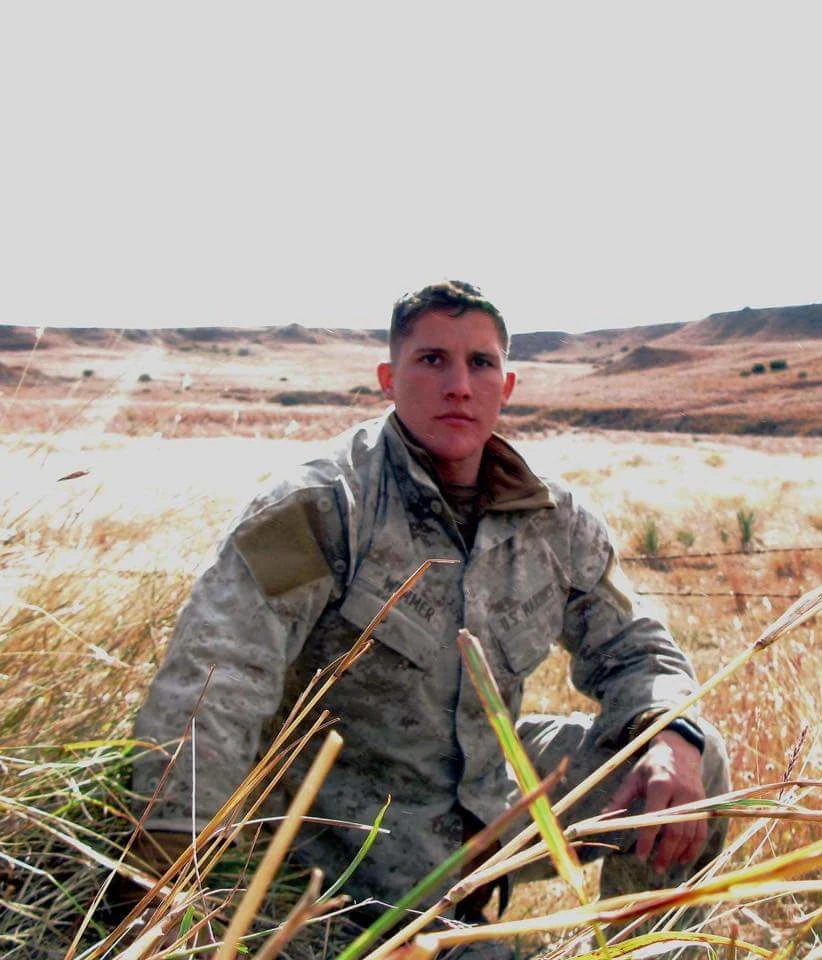November 8, 2004, shortly after midnight, we entered the mostly unhabituated city of Fallujah in Iraq. The mission was clear: 1st battalion 3rd Marines — the unit I was a part of — and five other infantry battalions would recapture it from more than 2000 combatants. Once inside the city, each day that passed felt like our last.
And for many, it was.
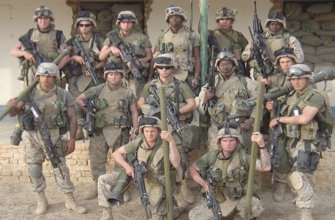
Nearly two months of intense military urban combat operations went by excruciatingly slow. Inside Fallujah, I was quick to use tools at the infantrymen’s disposal when confronted with an enemy stronghold. I fired off half a dozen AT-4 rockets and tossed several dozen grenades into homes (sometimes while I was still inside them) while the smoke of freshly detonated explosives filled the air. I breached hundreds of doors as the squad’s ballistic breacher — all of this without hearing protection. We just brushed it off, did our job, and had no idea this would be an issue a decade or more from now.
As a bystander, I experienced even more troublesome explosive events. This included sound concussive blasts from one-hundred-plus SMAW (shoulder-launched multipurpose assault weapon) rockets shot by our assualtmen. Overpressure events from interior explosive breaches brought me to my knees. Lastly, the responsibility of providing overhead coverage to Abram A1 tanks meant patrolling near this behemoth and experiencing the brain-rattling blasts when the tank shot its 120mm main gun.
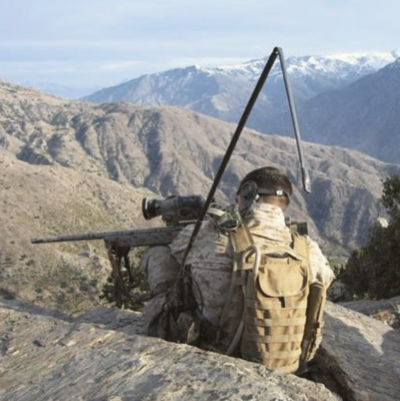
I didn’t seek medical attention during deployment; neither was there a medical specialist post-deployment asking us about the blasts we had experienced. In fact, in 2005, the department of defense knew very little about Traumatic Brain Injuries or MTBIs (mild-TBIs from sound concussive blasts to the brain). Frontline operators in kinetic combat operations are less likely to self-report or have the luxury of seeing medical professionals after experiencing a blast. Often post-blast injuries go unrecorded, which leads to an assortment of issues when the veteran is discharged from the military.
Unfortunately, every blast event I experienced on my first deployment was seen by the Veteran Affairs (VA) as a non-service-connected disability. It was only during my deployment to Afghanistan where I momentarily lost consciousness from an improvised explosive device that the VA recognized as a Traumatic Brain Injury.
Typically, veterans experience PTSD or TBI symptoms after departing the military. For some, symptoms can be immediate. For others, and in my case, it was much longer after leaving the service. I was guarded and hypervigilant in social settings, had flashbacks and survivors’ guilt. I wasn’t sure what all this meant for some time, and it just became a part of my new reality.
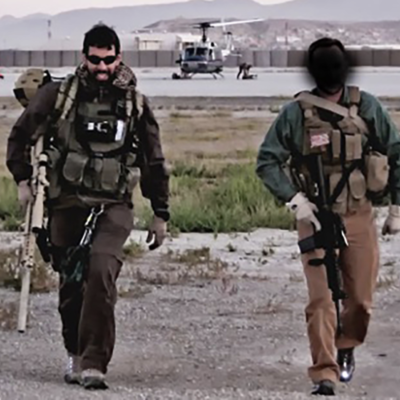
A veteran service counselor once told me, “You’re a different person now than when you entered the military. You carry the weight of regret, death, and sights better unseen.” These symptoms and emotions incapacitate a veteran trying to become a civilian, student, partner, or father if they constantly must deal with the scars of war. This is PTSD.
I didn’t notice or experience PTSD/TBI symptoms when I departed from the Marines. I avoided it altogether — so I thought. I saw what PTSD and TBI were capable of, having witnessed veterans I served with debilitated by them. I continued to ask myself, how was I unscathed by war?
Soon after separating from the Marine Corps (late 2007), I found myself back overseas. This time as a security contractor supporting the U.S. State Department’s diplomatic mission in Iraq and Afghanistan. I was right back in action with no time to reflect on my past. Frankly put, my service was in the review mirror (so I thought). I had this new mission. I also took up BASE jumping soon after the Marines. My role as a Marksman and newly acquired adventure-seeking hobbies kept me grounded, even if I was often in the air.
Unbeknownst to me, BASE jumping gave me precisely what I needed when I needed it the most. Each jump I made reinvigorated that sense of belonging, having a community of people who understood me outside the military. BASE-jumping was very much healing for me as it was destructive. It promoted risky behavior but, for the most part, was calculated. Standing on the edge of a cliff brought back that feeling I experienced before the city of Fallujah; scared and close to death. In both BASE jumping and war, fear turned to focus, which led to adrenaline, then a feeling of accomplishment and exhilaration.
In 2004, the military was ill-prepared to diagnose and treat Traumatic Brain Injuries and veterans returning with PTSD. Sadly, we still have a long way to go to get the adequate medical attention our veterans need, but we are making progress.
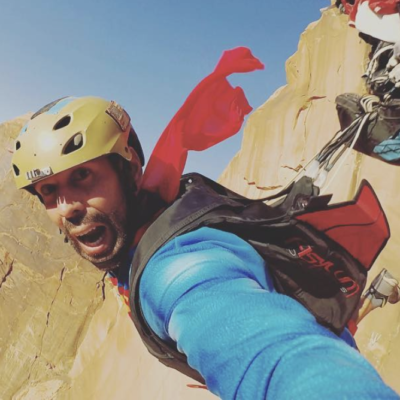
I met Tristan Wimmer on a base-jumping trip to Idaho several years ago. We instantly connected through the sport and our similar past experiences being Marines and security contractors. I have been grateful to have deep conversations about his brother and the pain associated with his suicide. Motivated to do something, Tristan made a call to action and founded 22 Jumps. I learned through Tristan and other veterans why BASE jumping has been so therapeutic for us. It forces us to be fully present in the jump, pushing out any past or present thoughts that do not serve us at that moment.
It impressed me that 100% of funds raised by the 22 Jumps go to Cohen Veterans Bioscience. These types of partnerships need our funding to advance our understanding of TBIs. Sadly, it hasn’t been a priority by the DoD. or the VA, but it’s time that changes.

